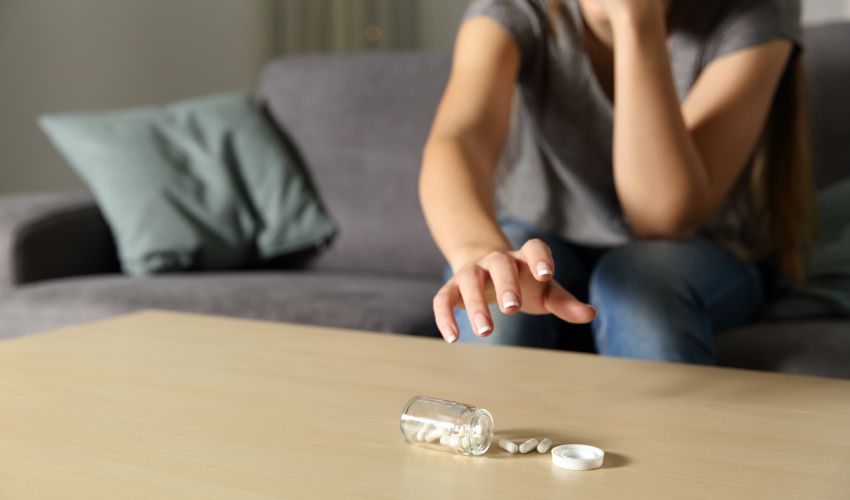Depression is a mood disorder that affects millions of people worldwide. It is characterized by persistent feelings of sadness, hopelessness, and a lack of interest in everyday activities. Depression can affect anyone regardless of age, gender, or background, and it is important to understand its causes, symptoms, and treatment options.
What is Depression?
Depression is a mood disorder that affects the way you think, feel, and behave. It is a common and serious mental health condition that can affect people of any age or gender. Depression can vary in severity from mild to severe and can impact all areas of a person’s life, including work, school, relationships, and overall quality of life.
Causes of Depression
The causes of depression are complex and can vary from person to person. Some of the factors that may contribute to the development of depression include biological factors, environmental factors, genetics, and hormonal imbalances. Certain life events such as the loss of a loved one, a relationship breakdown, financial difficulties, or a major illness can also trigger depression.

Symptoms of Depression
Depression can manifest in a variety of ways and can impact a person’s emotional, physical, and cognitive wellbeing. Some common emotional symptoms of depression include persistent sadness, feelings of worthlessness or guilt, loss of interest in activities, and a general lack of energy or motivation. Physical symptoms of depression can include changes in appetite or sleep patterns, unexplained aches and pains, and fatigue. Cognitive symptoms of depression can include difficulty concentrating, making decisions, and memory problems.
Types of Depression
There are several different types of depression, each with their own set of symptoms and diagnostic criteria. Major depressive disorder is the most common form of depression and is characterized by persistent feelings of sadness, hopelessness, and loss of interest in activities. Persistent depressive disorder, also known as dysthymia, is a milder form of depression that can last for years. Bipolar disorder, formerly known as manic depression, is characterized by episodes of extreme highs and lows in mood. Seasonal affective disorder is a type of depression that occurs during the winter months when there is less sunlight. Postpartum depression is a type of depression that occurs after giving birth. Psychotic depression is a severe form of depression that is accompanied by psychotic symptoms, such as delusions or hallucinations.
Treatment for Depression
Treatment for depression can vary depending on the severity of symptoms and individual needs. Some effective treatments for depression include psychotherapy, medication, alternative therapies, and self-care techniques. Psychotherapy, also known as talk therapy, can help individuals to understand and manage their symptoms of depression. Medications such as antidepressants can help to regulate mood and alleviate symptoms of depression. Alternative therapies such as acupuncture, massage, and meditation can also be helpful in managing symptoms of depression. Self-care techniques such as regular exercise, getting enough sleep, eating a healthy diet, and connecting with others can also be beneficial in managing depression.
In conclusion, depression is a common and serious mental health condition that can have a significant impact on a person’s life. By understanding the causes, symptoms, and effective treatments for depression, individuals can take the first step towards managing and overcoming this condition. If you or someone you know is struggling with depression, it is important to seek help from a qualified healthcare professional. With proper diagnosis and treatment, it is possible to manage depression and lead a happy, healthy life.
FAQs:
Can depression go away on its own?
While mild forms of depression can improve over time, more severe forms of depression usually require treatment.

How is depression treated?
Depression can be treated with a combination of medication, psychotherapy, brain stimulation therapies, and alternative treatments.
Can lifestyle changes help manage depression?
Yes, lifestyle changes such as exercise, a healthy diet, and good sleep habits can help manage depression symptoms.
Can depression lead to suicide?
Yes, depression is a major risk factor for suicide. It is important to seek professional help if you or someone you know is experiencing suicidal thoughts.
Can depression affect physical health?
Yes, depression can lead to physical health problems such as chronic pain, fatigue, and sleep disturbances.
Conclusion:
Depression is a serious mental health condition that affects millions of people worldwide. It is important to understand the causes, symptoms, and treatment options available to manage depression. While it may seem overwhelming, there are many effective treatments available, and with the right support, people can recover and lead fulfilling lives. If you or someone you know is struggling with depression, don’t hesitate to seek professional help.
Ignoring depression can lead to further complications, such as worsening symptoms, a decline in physical health, and an increased risk of suicide. It is crucial to seek professional help if you or someone you know is experiencing depression.
It is also important to note that recovery from depression takes time and effort. It may require a combination of treatments, lifestyle changes, and social support. However, with patience and determination, it is possible to manage depression and improve quality of life.
In conclusion, depression is a common mental health condition that affects people of all ages and backgrounds. By understanding its causes, symptoms, and treatment options, we can take the necessary steps to manage depression and lead fulfilling lives. Remember, seeking help is a sign of strength, and there is no shame in asking for support. If you or someone you know is experiencing depression, reach out to a mental health professional for assistance.
Additionally, it is important to reduce the stigma surrounding mental health issues, including depression. Many people still feel ashamed or embarrassed to seek help for mental health conditions, and this can prevent them from getting the care they need. It is crucial to remember that mental health is just as important as physical health, and seeking help for mental health issues is a sign of courage, not weakness.
If you are struggling with depression, there are also several self-help strategies you can try. These include getting regular exercise, practicing relaxation techniques, engaging in hobbies and activities you enjoy, and reaching out to supportive friends and family members. These strategies can help you manage symptoms and improve your overall well-being.
Ultimately, managing depression requires a comprehensive approach that addresses both the physical and emotional aspects of the condition. By working with mental health professionals and implementing self-help strategies, it is possible to manage depression and regain control of your life. Remember, depression is a treatable condition, and there is always hope for recovery.






















